

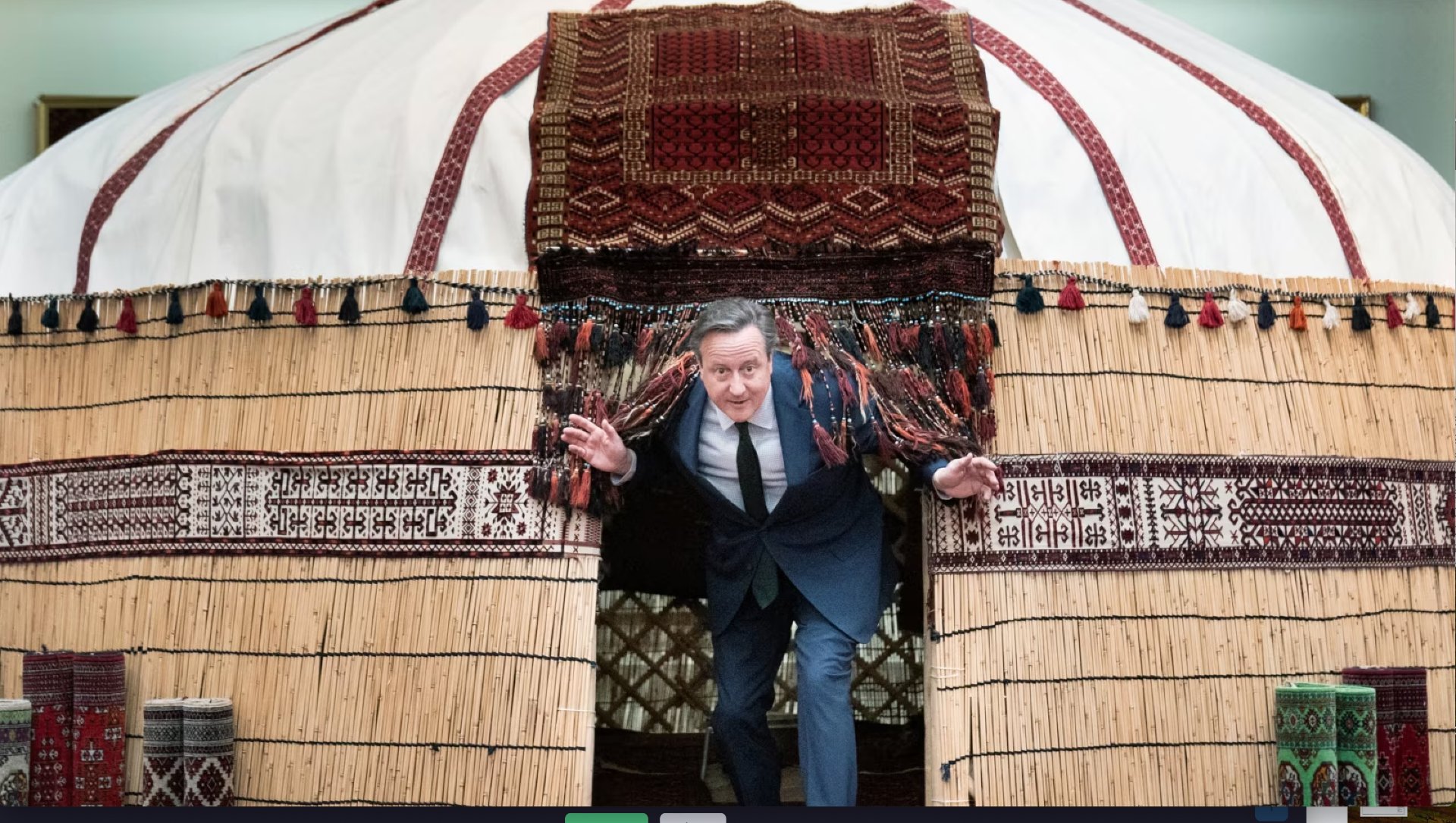
British Secretary of State for Foreign, Commonwealth and Development Affairs Lord David Cameron began his Central Asian tour on April 22 with a trip to Tajikistan and concluded it on April 24 in Turkmenistan. The analysis provided notes that the agreements signed during the visit with Kazakhstan and Turkmenistan are wide-ranging and cover multiple sectors. At the same time, the Kingdom focused on cooperation with Uzbekistan, Kyrgyzstan, and Tajikistan in specific areas such as economic development, education cooperation, and infrastructure cooperation.
It is noteworthy that prior to this year's tour, back in 2023, the British Parliament recommended that a CA+UK meeting be held in 2024. In 2024, the UK planned to comprehensively review its approach to Central Asia and expand cooperation with the countries of the region. But despite this, Cameron visited each country in the region separately and did not organize a meeting with foreign policy chiefs. It is possible that with parliamentary elections scheduled in the UK this year, the two sides could still hold a separate joint meeting between the foreign ministers of Central Asia and the UK. Regardless, Cameron became the first British foreign minister to visit Turkmenistan, Kyrgyzstan and Tajikistan. The British Foreign Secretary has not visited Uzbekistan since 1997, underscoring the historical significance of this tour for Britain's ties with the region. But Cameron's separate visits to each country in the region offer new perspectives for assessing the UK's strategy in Central Asia:
1. We need to understand why, after all, the UK has decided not to hold a general meeting with all Central Asian foreign ministry leaders now;
2. Visits to each country individually provide a unique opportunity to assess the UK's priorities and interests in each individual Central Asian country;
3. It is important to assess the future of the UK's relations with the Central Asian countries after this visit.
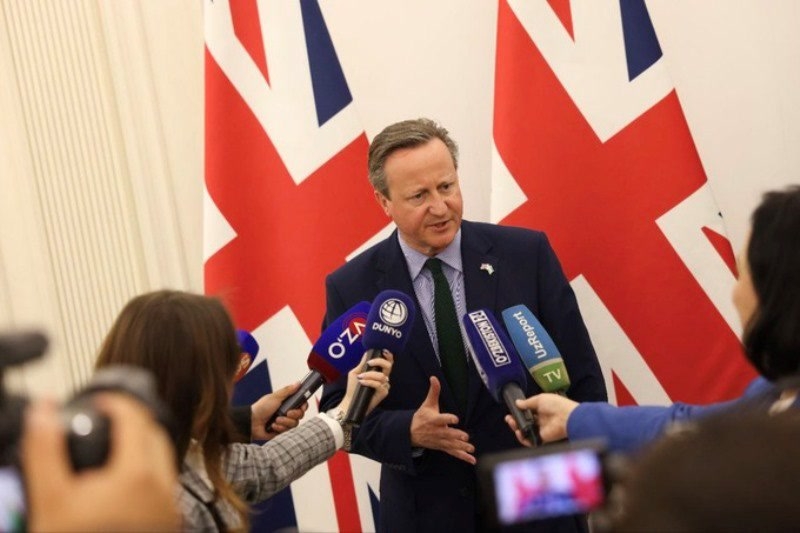
From the strategic partnership with Kazakhstan to the Intergovernmental Agreement on Air Services between Dushanbe and London.
The UK's overall objectives in Central Asia, based on the outcomes of the Central Asia tour, are to increase economic presence and educational exchange. The economic focus includes the establishment of trade councils, economic cooperation programs and partnerships in specific sectors, such as oil, gas and green energy technologies, which are vital to economic growth for the UK.
The visits highlighted a mutual interest in strengthening educational and cultural ties. This was evident in initiatives such as opening university branches, organizing language courses and various cultural exchanges. Such efforts are aimed at building long-term relationships through people-to-people connections and cooperation in education.
Kazakhstan: A Comprehensive Strategic Partnership
The UK's engagement with Kazakhstan reached an important milestone with the signing of the Strategic Partnership and Cooperation Agreement. This wide-ranging agreement, covering foreign policy, security, trade, investment and more, demonstrates Kazakhstan's key role in the region for the UK. The agreement not only aims to strengthen political and economic ties, but also covers important areas such as energy, environment and education. This depth of cooperation demonstrates the UK's intention to firmly establish its presence in Kazakhstan, reflecting the geostrategic importance of Astana as a central hub in the economic and political landscape of Central Asia.
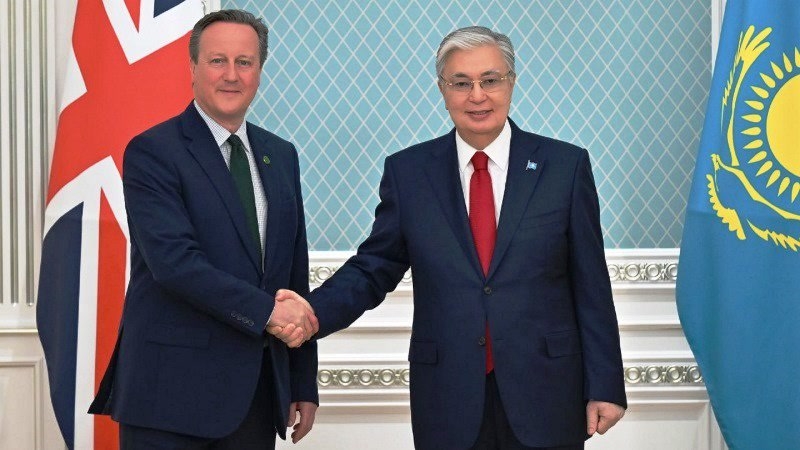
Uzbekistan: Economic and educational development
In Uzbekistan, negotiations led to the signing of a Joint Declaration on Comprehensive Partnership and a Memorandum of Understanding on Communications and Infrastructure. The emphasis on economic ties and cooperation in education points to the UK's strategy of strengthening economic ties and investing in long-term relationships through education. Such initiatives demonstrate the UK's recognition of Uzbekistan's fast-growing market and its strategic position as a transit hub in Central Asia.
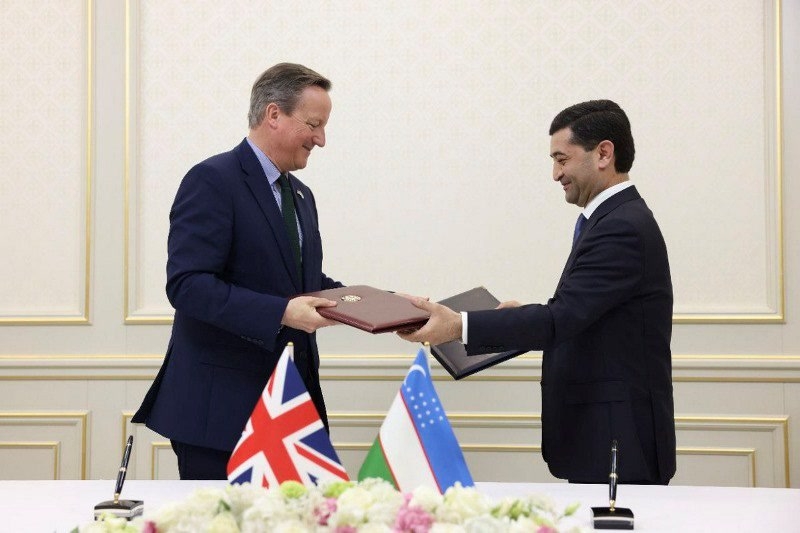
Kyrgyzstan: Supporting the local economy
The UK's visit to Kyrgyzstan was marked by the establishment of a special fund aimed at supporting small and medium-sized enterprises (SMEs) and the signing of a bilateral statement on economic cooperation. This focus on SMEs highlights a nuanced approach that recognizes the importance of grassroots economic development in Kyrgyzstan. Such support can be crucial for Kyrgyzstan, providing the necessary impetus for local businesses and contributing to sustainable economic growth.

Tajikistan: Strengthening Connectivity
Tajikistan's strategic importance was highlighted by the signing of the Intergovernmental Agreement on Air Services, which will enable the launch of direct flights between Dushanbe and London. This move is particularly important as it promises to boost trade, tourism and people-to-people links, providing a direct link that can make Tajikistan an accessible partner for the UK and vice versa. This agreement reflects the UK's interest in strengthening logistical links to increase its influence and access to the region.
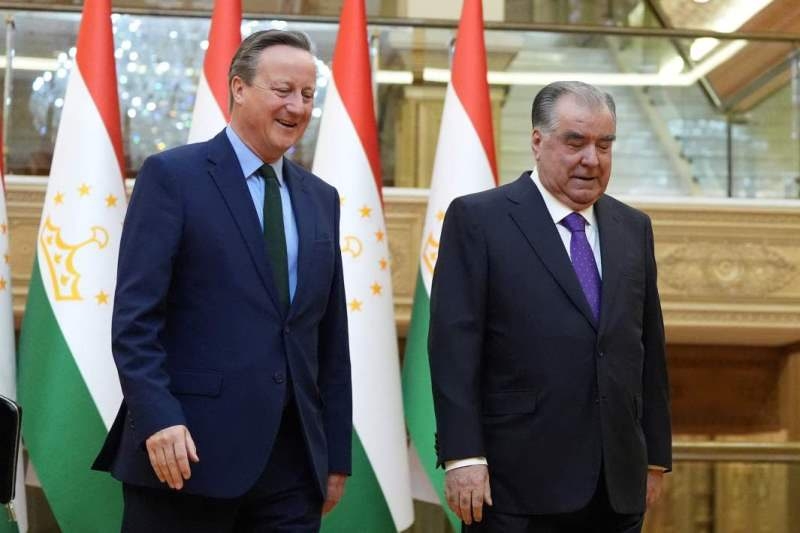
Turkmenistan: A diverse relationship
A range of agreements were concluded in Turkmenistan, from environmental protection to transportation and communications. The visit included high-level discussions that emphasized Turkmenistan's role in regional stability and its commitment to sustainable development and green initiatives. It is clear that the UK has broad objectives, seeking to engage a variety of sectors that align with both countries' interests in economic diversification and environmental sustainability.
Overall, Cameron's visit is often presented in the spirit of combating the influence of China and Russia in Central Asia, which at first glance is not apparent from the results of the visit. The UK sees the region as a unique opportunity to expand ties, both in terms of gaining access to resources and increasing opportunities for Central Asian migrants to work in the UK.
The UK Foreign Office website says that promoting the English language is one of the main aims of the visit to the region. It also says the UK plans to give the countries of Central Asia and Mongolia 50 million pounds (about $62 million) over three years to support sovereignty and independence. The amount is not that impressive - for five countries it's just over 12 million dollars each. Presumably these funds will be channeled through the foreign aid agency UKAID to support the fight against corruption and the effects of climate change. Chevening scholarships to study at British universities will also be doubled.

How will relations between the UK and Central Asian countries develop after Cameron's Central Asian tour?
The strengthening of bilateral ties is evident as each Central Asian country has signed agreements with the UK to meet specific mutual interests such as trade, investment, education and security. This tailored approach suggests that the bilateral relationship will not only strengthen but also become more multifaceted in the future. For example, the comprehensive strategic partnership with Kazakhstan and agreements with Turkmenistan covering multiple sectors indicate a deep and diversified partnership that is likely to strengthen political and economic ties.
Increased economic engagement is also evident, with initiatives to support small and medium-sized enterprises in Kyrgyzstan and strengthen trade and business ties in Uzbekistan. This focus on economic cooperation should help to create a robust business environment conducive to increased trade and investment, which could make the region an important economic partner for the UK.
Increased connectivity and strategic cooperation is highlighted by agreements to improve air links with Tajikistan, facilitating movement, trade and people-to-people exchanges between the UK and Central Asia. These efforts are expected to promote not only economic but also cultural and educational exchanges, strengthening mutual understanding and cooperation.
Sustainable development and environmental cooperation are also in the spotlight. The UK's involvement in environmental and green initiatives, particularly with Turkmenistan, is in line with the global shift towards sustainability. This focus is likely to intensify as cooperation will focus on green energy projects, climate change mitigation and sustainable development practices.